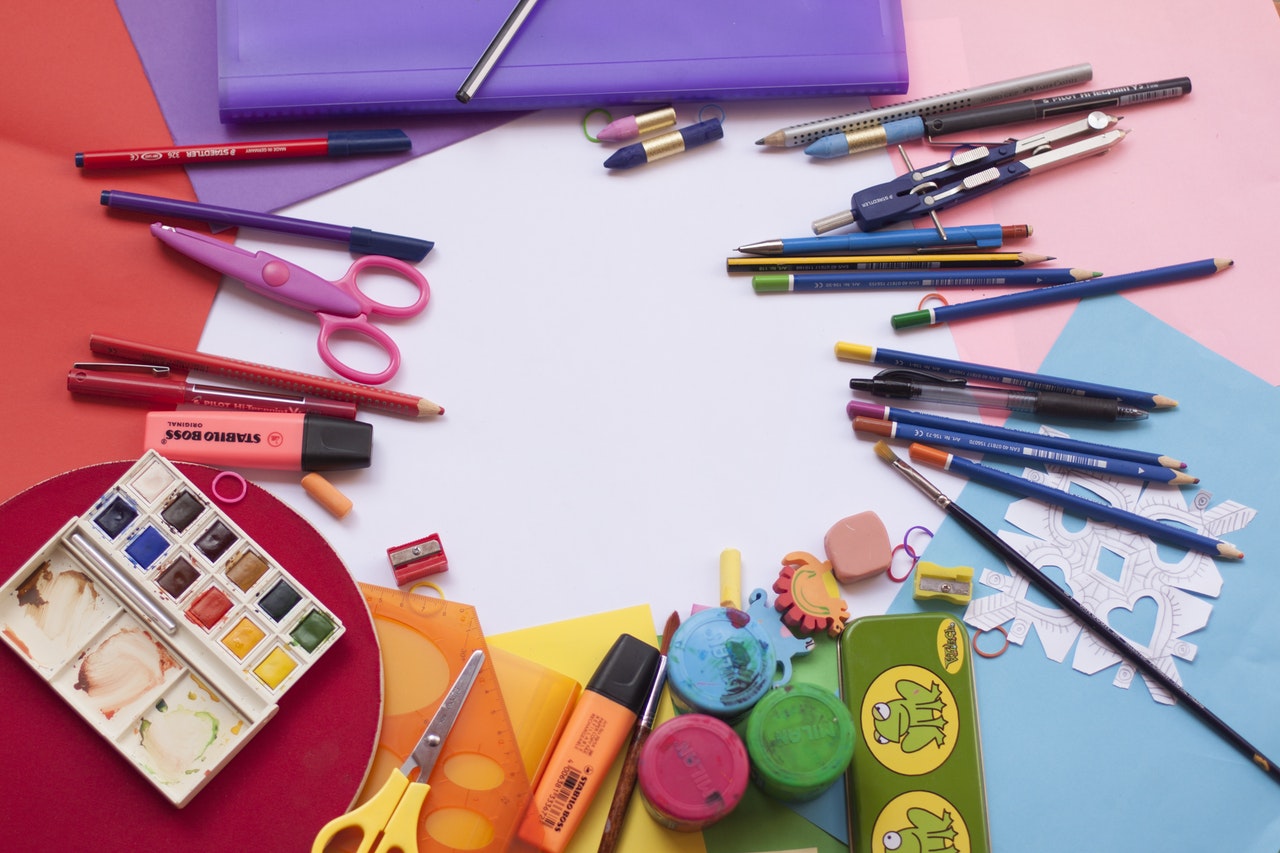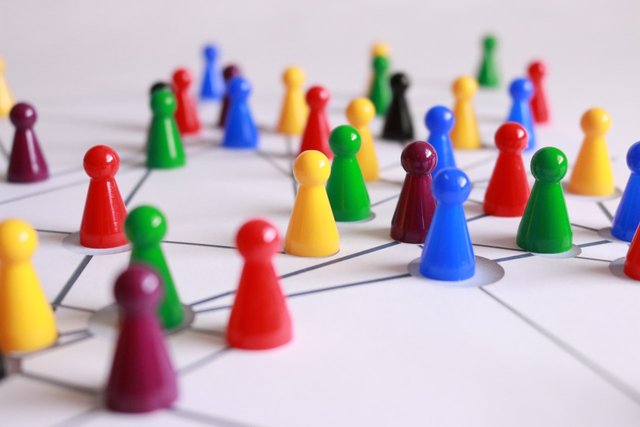Mapping of Realities- The power of Non Formal Education within the formal context
Dear Steemers,
I remember back in 1995, when I entered the first grade of primary school, my parents enrolled me immediately for additional courses of English. I literally did not know how to write or read. I recall our teacher showing us a book in her hands and saying slowly out loud "This is a BOOK".

Actually, the pronunciation of the word "book", in Albanian has another meaning: Bread. And ironically enough, nowadays I secure my bread mostly by English language (translation).
Also, she used to show us any kind of fruit and then, loudly pronounced each fruit word one by one. The same with colors :)
I acknowledge now, this is a very ad- hoc methodology, but I am definitely so grateful to my parents and so grateful to that teacher. I say grateful because they insisted so much in my education and in those extra classes after school. While I was older and more shaped as a personality, they also paid for chemistry, physics and mathematics extra classes. I remember myself always being prepared for some Regional/ National Competition. Must admit, I used to be sharper than today :)
And that is the bright side of the coin. On the other hand, they had to sacrifice a lot from their needs and instead, invest in my education. Most of the time, it is pretty hard not to be selfish. And here, I would like to pay some respect to every parent of ours that did that.
In March 2016, I had the luck to receive a 12 days training in Torino Di Sangro, Italy. The training itself was an initiative of Council of Europe and the topic we discussed was Non Formal Education. I guess most of you have not heard about it or do not know how to distinguish it from the other types of education out there.

Until now, we have acknowledged by definition and included in laws the following education types:
Type 1:
Formal learning refers to what takes place in the education and training system of a country. It is official, structured, organised by public organisations or recognised private institutions and results with formal certification and formal level of qualification which is recognised by relevant national educational authorities. Formal education is usually organised as full – time education and is organised as a continuous process with defined stages. Formal education encompasses primary, lower and upper secondary education, higher and university education that culminate in the achievement of a degree or a professional qualification or diploma or a recognised certification as well as adult education programmes. (Source 1)
Type 2:
Non-formal learning is characterised by a deliberate choice of the person, which takes place outside of the systems mentioned above, in any organisation pursuing educational and training purposes, even volunteering, the national civil service, private social service and in enterprises. Thus, non – formal education is any type of structured and organised learning which is institutionalised, intentional and planned by an educational provider, but which does not lead to formal level of qualification recognised by the relevant national education authorities. People of all age groups can participate in non - formal education which can be offered through courses, workshops, seminars. (Source 1)
Type 3:
Informal learning, lastly, is also developed whether or not there is a deliberate choice and is realised in the performance, by any person, of activities in everyday situations and interactions that take place in them, within the context of work, family and leisure, i.e. it is without external support and is not institutionalised. In the educational process, therefore, the soft dimensions come into play such as teaching styles and management of interactions that enable, especially those who do not have access to the resources that allow them to be active and able participants, to make use of knowledge to achieve their personal ambitions. Furthermore, this also attenuates or reinforces motivations, expectations, intentions, self-representations and practices of inclusion and exclusion, discrimination and social hierarchisation. (Source 1)
“Mapping of Realities”
As per definition provided in Law No. 8872 dated 29.03.2002 and amended as per Law no.10011 dated 30.10.2008 and Law no. 10434 dated 23.06.2011, “Non- Formal Education in Albania refers to the education received in planned activities, not necessarily drafted in accordance to the learning form, related to objectives, learning support or time; but contains important learning elements. Non- Formal Education is purposeful, planned by the students or pupils and in general is not certified at the end of the learning process; however, it can be certified in special occasions.”
As per our understanding, Non- Formal Education in Albania presents itself at a very early stage. An important concern is raised while we observe the comprehension of the concept and the methodologies used by NFE, as they are not clearly defined or specifically mentioned in any of the governmental main strategies and reforms.
In addition, it comes to our attention that NGOs operating in Albania are the main actors for advocacy, promotion and implementation of this form of education. Hereby, Non- Formal Education can find a broader application in the community and in formal educational structures and can contribute into addressing issues such as human rights, alternative education, sustainable environmental development, ethical media transmission, active participation and lobbing process, as crucial fields into building a functional society, which meets the needs of our fast growing global environment.
Non- Formal Education can contribute in the formal context through motivating participants by involving them during the learning process in practical experiences that might include, indirect guiding for the self- reflection process, visual methodologies in the learning process, exercises of need analysis, etc.

Concerning cultural education, Albania has an urgent need on creating open spaces that will serve youth in expressing themselves and invest their time actively. Efficient structures for achieving such a result can be youth centers, social bars, and work spaces for exploring independent capacities. In this context, another emerging issue in Albania appears to be the adaptation, conservation and re- use of cultural heritage objects, such as the reuse of bunkers as hostels, industrial structures as local production fairs, museums, libraries, and eco-camping sites, which were built during the communist regime in Albania.
In addition, Albania is facing difficulties in preserving its environment through sustainable environmental development. During the last 27 years, the country is experiencing an increase of natural and biodiversity conservation in protected areas, deforestation, waste management, pollution, eco- system management, and hunting. Moreover, as a result of the pre- accession period for EU integration, Albania is battling in adapting the EU legal acts in central and local governance. This period must be seen as a positive time to approach the integration of the non- formal education learning process into the formal context by introducing environmental education through raising awareness activities such as Educational Environmental Path (EEP) developed by “ORA +” project, introduction of community gardens and urban farming concepts, bird watching practices, recycling methods, eco- mapping, and observation of nature and its elements.
The areas of education, training, youth and culture are primarily the competence of the Member States. A cooperation framework on education and training policies aims to converge national policies and the attainment of shared objectives through an open method of coordination, which led to the “Education and Training 2010” program, which integrates all actions in the fields of education and training at European level. As regards cultural diversity, Member States need to uphold the principles enshrined in Article 151 of the EC Treaty and ensure that their international commitments allow for preserving and promoting cultural diversity. Member States need to have the legal, administrative and financial framework and necessary implementing capacity in place to ensure sound financial management of the education, training and youth Community programmes (currently Leonardo da Vinci, Socrates, Youth).
References:
Source 1: YOUNG_ADULLLT Project of CoE